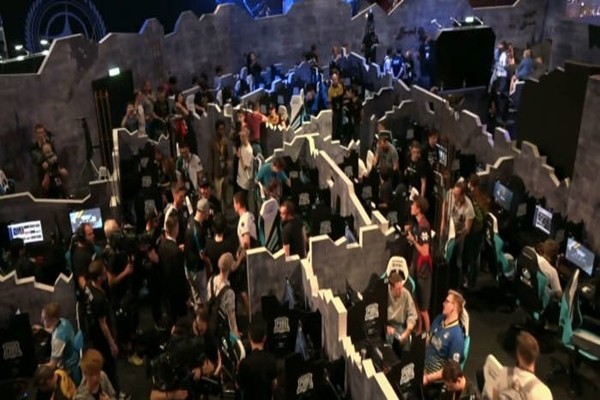Battlegrounds finally gave South Korea’s eSports industries what they wanted for long time by being promoted as a global event. As its popularity continues, many Battlegrounds teams are forming one after the another in overseas. Many see this as a golden opportunity for South Korean events to grab leadership in global eSports markets.
Cloud 9, which operates pro teams for games such as ‘League of Legends’, ‘Overwatch’, and ‘Hearthstone’, formed a Battlegrounds team in this past December. Elite teams such as TSM (U.S) and NiP (Sweden) also made announcements last year that they would be forming Battlegrounds teams and they are currently looking for players to fill their teams.
OGN is going to select three Chinese teams and three teams from North America and Europe and have them participate in a final league of a Battlegrounds league called ‘PlayerUnknown’s Battlegrounds Survival Series (PSS)’ that is going to be held in February.
Chinese teams constantly participate in ‘Africa TV PUBG League (APL)’, which is held by Africa TV. It invited two Chinese teams for Split 1, which ended in this past December, and it selected two teams from China for Split and Split 3, which started in January, after going through team trials in China. “Popularity of Battlegrounds in China is very high.” said a representative for Africa TV.
Bluehole and PUBG contributed to establishing a foundation that will allow foreign gamers to participate in eSports even during the early days of Battlegrounds. Unlike other events that are continuously dominated by South Korean teams, Battlegrounds do not have any teams or players that have shown unrivaled skills.
Bluehole held its first eSports invitational at Gamescom, which was held in Germany in August of 2017. Top ranking global players and 100 popular global streamers participated in this invitational. Players from different countries took away first places in solo, duo, and squad modes.

At 2017 PUBG Asia Invitational, which was held in Busan during G-STAR period in November of 2017, iFTY team from China won the first place in squad mode.
“Because there continues to be new teams emerging, any unexpected changes can occur due to new players.” said a representative for an eSports industry.
KSV and KONGDOO from South Korea also formed their Battlegrounds teams. SK Telecom T1, which is the one that has made most investments out of current South Korean eSports teams, is also going to form a Battlegrounds team in August.
South Korea’s eSports industries have grown mostly based on foreign games such as StarCraft and League of Legends. In 2000s, Blizzard’s StarCraft was at the center of eSports. After 2010, Riot Games’ League of Legends has become the main event. Large businesses also have not invested into any other games other than these two games.
“Central government and local governments need to work together with game developers that have global IPs (Intellectual Property) and figure out how to develop regional eSports facilities.” said Professor Wie Jung-hyeon of Chung-Ang University. “Because global streaming media such as Twitch and others are already attracting non gamers to eSports, South Korean Government should reconsider hasty regulations on South Korean platforms such as Africa TV and others.”
Staff Reporter Kim, Siso | siso@etnews.com